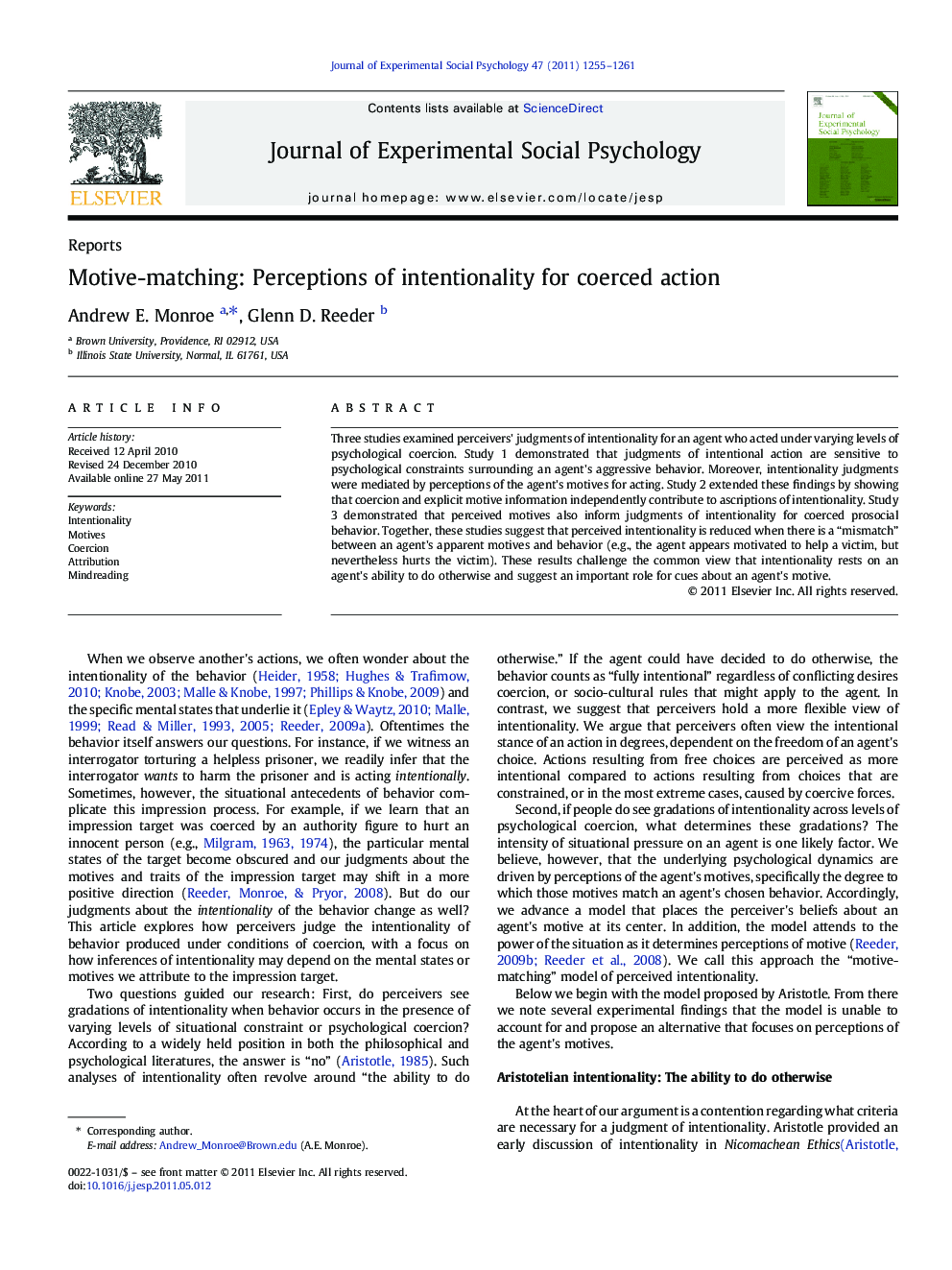| Article ID | Journal | Published Year | Pages | File Type |
|---|---|---|---|---|
| 947996 | Journal of Experimental Social Psychology | 2011 | 7 Pages |
Three studies examined perceivers' judgments of intentionality for an agent who acted under varying levels of psychological coercion. Study 1 demonstrated that judgments of intentional action are sensitive to psychological constraints surrounding an agent's aggressive behavior. Moreover, intentionality judgments were mediated by perceptions of the agent's motives for acting. Study 2 extended these findings by showing that coercion and explicit motive information independently contribute to ascriptions of intentionality. Study 3 demonstrated that perceived motives also inform judgments of intentionality for coerced prosocial behavior. Together, these studies suggest that perceived intentionality is reduced when there is a “mismatch” between an agent's apparent motives and behavior (e.g., the agent appears motivated to help a victim, but nevertheless hurts the victim). These results challenge the common view that intentionality rests on an agent's ability to do otherwise and suggest an important role for cues about an agent's motive.
Research highlights► Three studies test the effects of motive and coercion on intentionality judgments. ► Studies 1 and 2 demonstrate the impact of motives and coercion on judgments of intentionality for aggressive behavior. ► Study 3 replicated these findings for prosocial behavior. ► These studies argue that motive information and situational factors are useful for fine-tuning judgments of intentionality.
